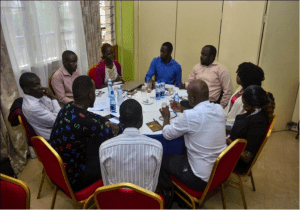By Lilian Kaivilu |
A dusty and rough road leads to Kibera informal settlements in Kenya’s capital-Nairobi. Residents here are seemingly busy, braving the day’s heat and dust to put food on the table.
In most informal settlements, crime, congestion, poor sanitation and poverty are often used as the best descriptions of life therein. Congestion is perceived as the real picture in the slums. Many perceive the informal settlements, just like Kibera, as the source of cheap labour for the city industries.
But on this particular afternoon, CIPESA-ICT4Democracy in East Africa Media Fellow, Lilian Kaivilu, discovers another side of Kibera; a beautiful, tidy, organized and developed face of Kibera that few people know about. Let us call it ‘The Other Kibera’. Here, the use of Information Communication Technology (ICT) is rife. One would be forgiven to believe that he or she is actually in the middle of the city.
Continue Reading →



